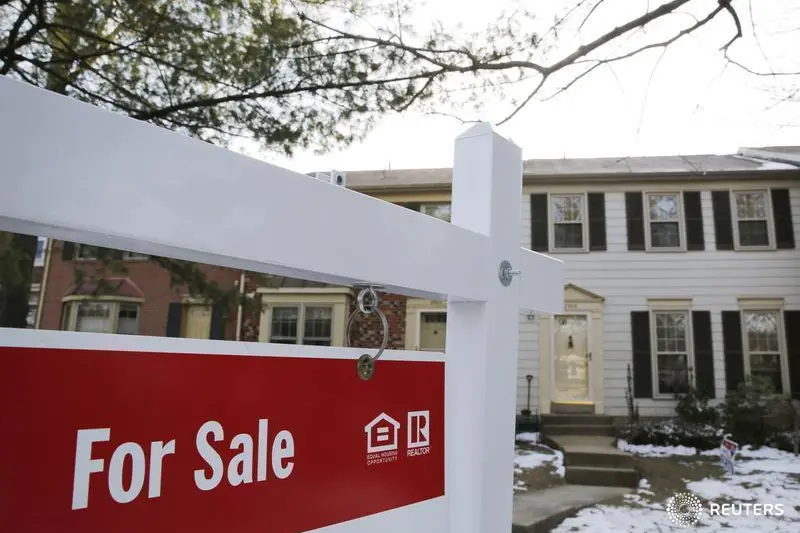PHOTO
LONDON, (Reuters Breakingviews) - Josh Ryan-Collins has written a book about the housing crisis without mentioning housing. If he’s right, policymakers should take off their hard hats and study the peculiarities of bank credit allocation and land markets. Twenty-somethings from London to Los Angeles can be forgiven a collective groan.
Housing crises inevitably feel local. Hence San Franciscans blame soaring prices on an influx of technology workers with bulging Silicon Valley pay packets, while New Yorkers talk about zoning restrictions or rent control. Brits’ preferred grievances are antiquated planning laws and the supposed ubiquity of empty properties owned by wealthy Russians.
City-by-city accounts tell part of the story, and helpfully furnish the aggrieved with some villains. Yet the evidence calls for a more international explanation. House prices in the 34 countries belonging to the rich-world OECD club are about 20 percent higher relative to incomes than they have been on average since 1981. Renters in Britain spend almost two-fifths of their income on housing, compared with a tenth in the 1960s and 1970s, while rent in New York and San Francisco swallows up 42 percent and 46 percent of residents’ respective earnings. Sydney, Melbourne, Auckland, Vancouver, Toronto, Manchester and Los Angeles are not much different.
What do these housing markets have in common? The obvious reason is a shortage of building - either because of government penny-pinching or restrictive planning regulations. That’s inadequate as an explanation. British construction plummeted between the late 1960s and early 1980s, yet house prices adjusted for inflation rose most stratospherically from the 1990s. And there’s little evidence that Western planning systems, drawn up in the decades after World War Two, suddenly became more restrictive between the 1980s and 1990s - the period directly preceding the rich-world’s most dramatic house price inflation. Affordability worsened even in cities with relatively stable populations.
Ryan-Collins, whose “Why Can’t You Afford a Home” was published by Polity on Oct. 12, thinks we should look instead at the financial system. Specifically, the rising amount of money banks lend out as mortgages as opposed to business loans. This “debt shift”, a candidate for the most underappreciated recent Western economic trend, probably has as much to do with house prices as do empty second homes or a lack of buildings.
Mortgage lending used to be just one other thing banks did. Outstanding home loans were equivalent to roughly one-quarter of advanced economies’ annual output in 1980, while business loans and other types of debt was almost 40 percent. In the 1980s, however, U.S. President Ronald Reagan, UK Prime Minister Margaret Thatcher and others began aggressively incentivising home ownership and deregulating the financial system. By the late 2000s, U.S. and UK mortgage credit was 80 percent and 70 percent of GDP respectively, compared with between one-fifth and a third in the 1960s. Other types of credit barely changed in relative terms.
Major banks increasingly funded mortgages through lightly-regulated international wholesale markets, says Ryan-Collins. In America they sold loans to state-subsidised enterprises Fannie Mae and Freddie Mac. Homeowners could deduct mortgage interest payments from their tax bills, while in Britain the Right to Buy reforms allowed council tenants to buy their homes at a discount, increasing the size of the home loan market.
In a normal market, soaring demand creates extra supply. Tempted by profit, rival manufacturers produce more of a particular product until the price drops. That’s harder with housing: the land on which desirable properties sit is fixed, and there’s a limit to how many dwellings can fit in one place.
That scarcity turns the usual cycle on its head. Rather than inducing extra supply, rising home ownership in rich countries simply pumped up prices. Seeing this, bankers in turn made more mortgages, and citizens started seeing housing as a financial investment. Increasing mortgage debt and house prices created a self-reinforcing cycle, Ryan-Collins argues, pushing the cost of a home further away from wages. It’s a persuasive account. A 2011 OECD analysis also concluded financial deregulation boosted real house prices - by 30 percent to 45 percent depending on the generosity of mortgage tax relief in rich countries.
The question is whether Ryan-Collins’ thesis means we can’t build our way out of the crisis. That’s the common-sense approach favoured in Britain, for example, where the government hopes to build 300,000 new homes a year - a near-40 percent increase.
It can’t hurt. Yet without significantly higher interest rates or the unwinding of government subsidies like Help to Buy, extra UK supply may just be soaked up by a corresponding wave of mortgage liquidity. The same goes for America, where specialist lenders like Freedom Mortgage have made up for the post-crisis retreat of big banks.
Ryan-Collins has bigger ideas: reverse the mosaic of subsidies favouring mortgage lending; create state-run or at least state-subsidised banks favouring business lending; and tax land values so that property owners only benefit from price rises due to home improvements. While noble, such radical reforms share the basic problem of risking a house price collapse when enacted. As such, they’re unlikely to get anywhere near the manifesto of political parties gunning for the homeowner vote.
A more plausible option is simply accepting that mortgages are a bubble that needs slowly deflating. Young people that don’t inherit housing wealth will struggle to get on the housing ladder. That calls for higher inheritance and estate taxes, as well as reforms to make renting easier and more affordable. The honest response to the housing crisis is probably to admit that many twenty-somethings won’t own one.
CONTEXT NEWS
- “Why Can't You Afford A Home?”, by Josh Ryan-Collins, was published by Polity on Oct. 12.
- “Rethinking the Economics of Land and Housing”, by Josh Ryan-Collins, Toby Lloyd and Laurie Macfarlane, was published by Zed Books in February 2017.
(Editing by George Hay and Karen Kwok)
© Reuters News 2018





















